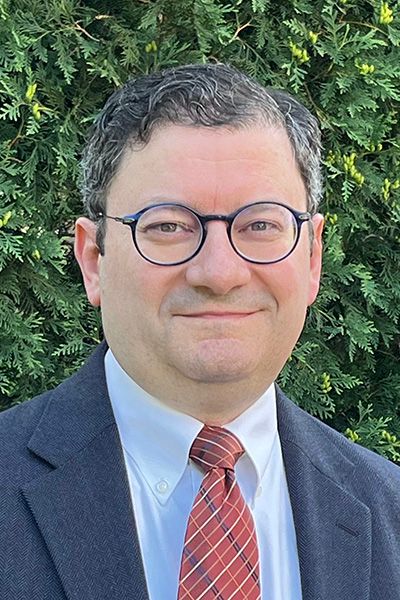
|
Daniel Treier, Ph.D.Gunther H. Knoedler Professor of Theology
On Faculty since 2001
|
- Areas of Expertise
- Biography
- Education
- Professional Affiliations
- Links
- Research
- Courses Taught
- Select Publications
- Videos
- Books
- Christology
- Evangelicalism
- Hermeneutics
- Systematic Theology
- Theological Interpretation of Scripture
- Theology and Culture
I grew up on a farm outside Bloomdale, Ohio, a town of 700. I am married to Amy Black (Treier), who teaches Political Science at Wheaton, and we have a daughter named Anna. My church background prepared me for Wheaton by including Methodist, Grace Brethren, Baptist, Evangelical Free, briefly Anglican, and now Presbyterian churches: my theological commitments are evangelical and eclectic, very broadly in the Reformed tradition. My scholarship focuses generally on evangelical systematic theology and theological interpretation of the Bible, more specifically on Christology and cultural engagement. A unifying theme is pursuit of biblical wisdom. Hobbies include reading, watching baseball, reading, golfing, and reading.
Trinity Evangelical Divinity School
Ph.D., Systematic Theology, 2002
Grand Rapids Theological Seminary
Th.M., New Testament, 1998
Grand Rapids Theological Seminary
M.Div., 1996
- American Academy of Religion
- Evangelical Theological Society
- Institute for Biblical Research
- International Bonhoeffer Society
- International Jacques Ellul Society
- Karl Barth Society of North America
- Society of Biblical Literature
- Consulting editor, International Theological Commentary series (T & T Clark)
- Co-editor with Kevin J. Vanhoozer, Studies in Christian Doctrine and Scripture series (IVP Academic)
- Over twenty different undergraduate and graduate courses
- Current electives focus on Dietrich Bonhoeffer, Oliver O'Donovan, Christology, and ecclesiology
- The first-year PhD seminar on hermeneutics
Twentieth-Century Biblical Interpretation Oxford Handbook of the Bible in America. Edited by Paul Gutjahr. 2017
What is theological interpretation? An ecclesiological reduction International Journal of Systematic Theology. 2010.
This article addresses ‘theological interpretation’, first, by constructing a coherent narrative framework to account for its recent popularity via key players, common practices and a genealogy. Second, by addressing disagreements that remain within this movement via a kind of ‘ecclesiological reduction’, the article's descriptive starting point brings theological implications. In particular, strong parallels surface between the fortunes of theological interpretation and another essentially contested concept –‘postliberal’ theology. Both ‘postliberalism’ and ‘theological interpretation’ have fuzzy boundaries precisely due to their character as trans-denominational forms of scholarly ecumenism through which God may help renew the church's engagement with Scripture in the post-Christian West.
Biblical theology and/or theological interpretation of scripture?: Defining the relationship Scottish Journal of Theology. 2008.
‘Biblical theology’ has long influenced modern theological method, especially Protestant, as both boon and bane. Its role has been seen as either pivotal or problematic in the attempt to construe the Christian Bible as scripture with unified teaching for the contemporary church. The attempt to unfold biblical teaching as having organic unity, related to an internal structure of theological concepts, is frequently perceived as a failure, a has-been that leaves us only with fragmentation – between parts of the Bible, between academy and church, church and world, clergy and laity, and between various theological disciplines. Today a new movement is afoot, often labelled ‘theological interpretation of scripture’. Some of its adherents define this practice as distinct from, even opposed to, biblical theology. Others treat the two practices as virtually coterminous, while perhaps contesting what ‘biblical theology’ is typically taken to be in favour of new theological hermeneutics. Much of the difficulty in defining the relationship, then, stems from lingering debates about what biblical theology can or should be. The rest of the difficulty is perhaps rooted in the dilemma of any interdisciplinary efforts: how to breach unhelpful sections of disciplinary boundaries without redefining territory so nebulously that no one knows where they are.
- Lord Jesus Christ
- Introducing Evangelical Theology
- Evangelical Dictionary of Theology
- Theology and the Mirror of Scripture: A Mere Evangelical Account (Studies in Christian Doctrine and Scripture)
- Proverbs & Ecclesiastes (Brazos Theological Commentary on the Bible)
- Introducing Theological Interpretation of Scripture: Recovering a Christian Practice
- Virtue and the Voice of God: Toward Theology as Wisdom